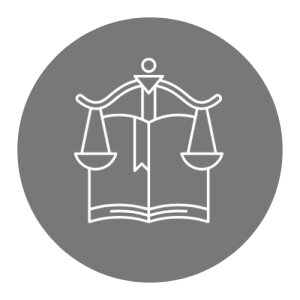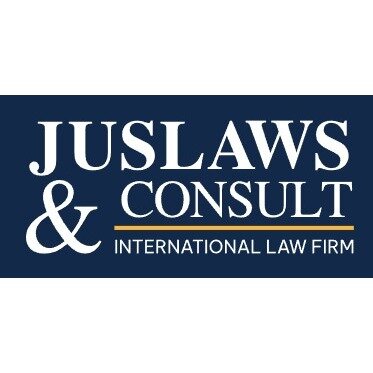Best Legal Malpractice Lawyers in Bangkok
Share your needs with us, get contacted by law firms.
Free. Takes 2 min.
List of the best lawyers in Bangkok, Thailand
Legal guides written by Smart Legal Solutions:
- Main Legal Measures to Protect Foreign Investment in Thailand
- The importance of the geographical indications for the Thai economy
Legal guides written by Mahanakorn Partners Group Co., Ltd:
- Thailand Strengthens Anti-Money Laundering Laws with New Amendments
- Recent Updates to Thailand’s Long-Term Resident (LTR) Visa and SMART Visa Programs
- Managing Risks in Public-Private Partnership Projects
About Legal Malpractice Law in Bangkok, Thailand
Legal malpractice in Bangkok, Thailand, involves cases where a lawyer fails to provide competent and professional service, resulting in harm to the client's interests. Although the legal profession in Thailand is subject to strict standards, failures can occur, leading to significant repercussions for clients. Legal malpractice may include missing deadlines, conflicts of interest, misappropriation of funds, and failure to know or apply the law correctly.
Why You May Need a Lawyer
Individuals may require legal assistance in cases where they believe their lawyer has not performed their duties competently. Common situations include errors in legal documents, lack of proper communication, unethical behavior, or when a lawyer's negligence has led to an unfavorable outcome. Hiring a legal malpractice lawyer can help assess the situation, guide you through the legal process, and potentially recover damages incurred due to malpractice.
Local Laws Overview
Legal malpractice cases in Bangkok are governed by various statutes and regulations, including professional rules of conduct for lawyers. Key aspects include the requirement for a duty of care, establishing a breach of duty by the lawyer, proving causation, and demonstrating actual harm or damage. The statute of limitations for filing a legal malpractice claim in Thailand is typically one year from the discovery of the malpractice.
Frequently Asked Questions
What constitutes legal malpractice in Bangkok?
Legal malpractice involves any act or omission that deviates from accepted professional standards, leading to client harm.
How do I prove legal malpractice in Thailand?
To prove legal malpractice, you must demonstrate that the lawyer owed you a duty of care, breached that duty, and caused damages as a result.
What damages can I recover from a legal malpractice suit?
Damages may include financial losses, costs associated with rectifying the legal mistake, and in some cases, punitive damages, depending on the severity of negligence.
Can I sue my lawyer for not achieving the desired outcome?
No, dissatisfaction with an outcome alone is not grounds for a malpractice claim unless there is evidence of negligence or breach of duty.
What should I do if I suspect legal malpractice?
Consult with a competent legal malpractice lawyer to evaluate the circumstances and determine whether malpractice has occurred.
Is there a time limit for filing a legal malpractice claim?
Yes, typically, you have one year from the discovery of the malpractice to file a claim in Thailand.
How can I find a legal malpractice lawyer in Bangkok?
You can research local law firms, consult online legal directories, or seek referrals from trusted sources to find a specialized lawyer.
Can legal malpractice claims be settled out of court?
Yes, many legal malpractice claims are settled through negotiations or mediation before reaching trial.
What role does the Lawyers Council of Thailand play in malpractice cases?
The Council regulates legal professionals, handling complaints, and disciplining lawyers who violate professional standards.
Can I file a complaint against a lawyer with the Lawyers Council of Thailand?
Yes, you can file a formal complaint if you believe a lawyer has breached professional conduct rules.
Additional Resources
To further understand legal malpractice in Bangkok, consider reaching out to the Lawyers Council of Thailand, or researching publications from Thai legal organizations. These bodies provide guidance and oversight for legal professionals and can be a valuable resource.
Next Steps
If you suspect you are a victim of legal malpractice, it is important to act swiftly. Begin by gathering all pertinent documents and evidence related to your case. Then, seek consultation with a specialized legal malpractice lawyer. They can assess your situation, advise you on the strength of your claim, and guide you through the legal process to protect your rights and interests.
Lawzana helps you find the best lawyers and law firms in Bangkok through a curated and pre-screened list of qualified legal professionals. Our platform offers rankings and detailed profiles of attorneys and law firms, allowing you to compare based on practice areas, including Legal Malpractice, experience, and client feedback.
Each profile includes a description of the firm's areas of practice, client reviews, team members and partners, year of establishment, spoken languages, office locations, contact information, social media presence, and any published articles or resources. Most firms on our platform speak English and are experienced in both local and international legal matters.
Get a quote from top-rated law firms in Bangkok, Thailand — quickly, securely, and without unnecessary hassle.
Disclaimer:
The information provided on this page is for general informational purposes only and does not constitute legal advice. While we strive to ensure the accuracy and relevance of the content, legal information may change over time, and interpretations of the law can vary. You should always consult with a qualified legal professional for advice specific to your situation.
We disclaim all liability for actions taken or not taken based on the content of this page. If you believe any information is incorrect or outdated, please contact us, and we will review and update it where appropriate.
















